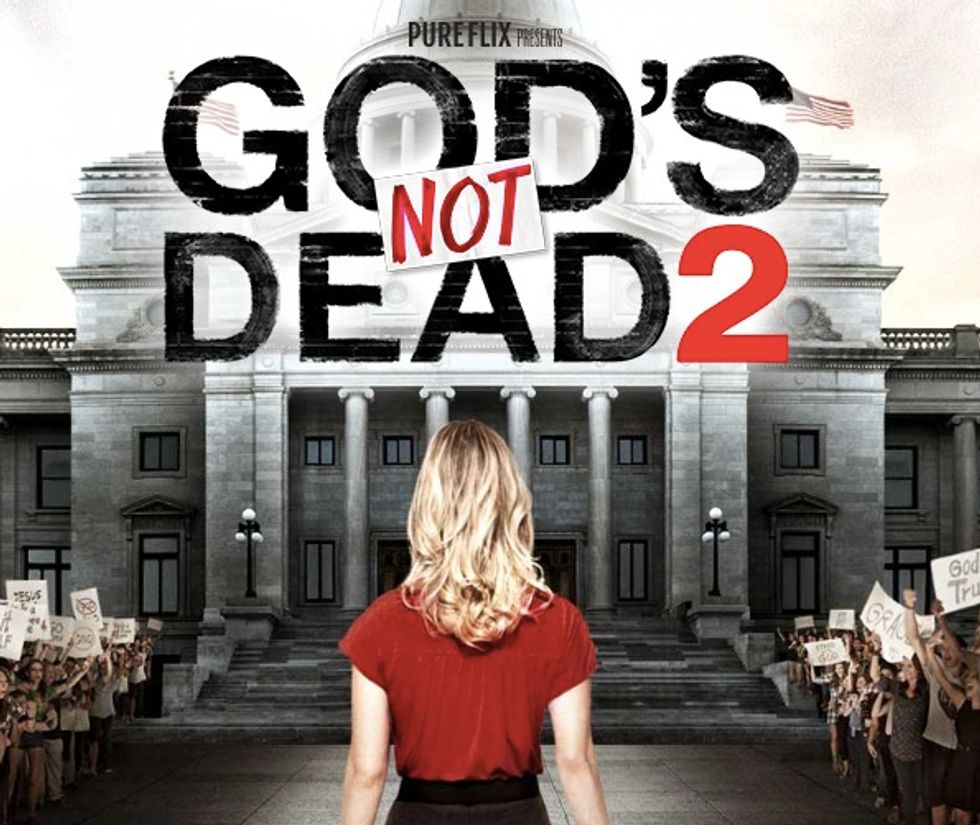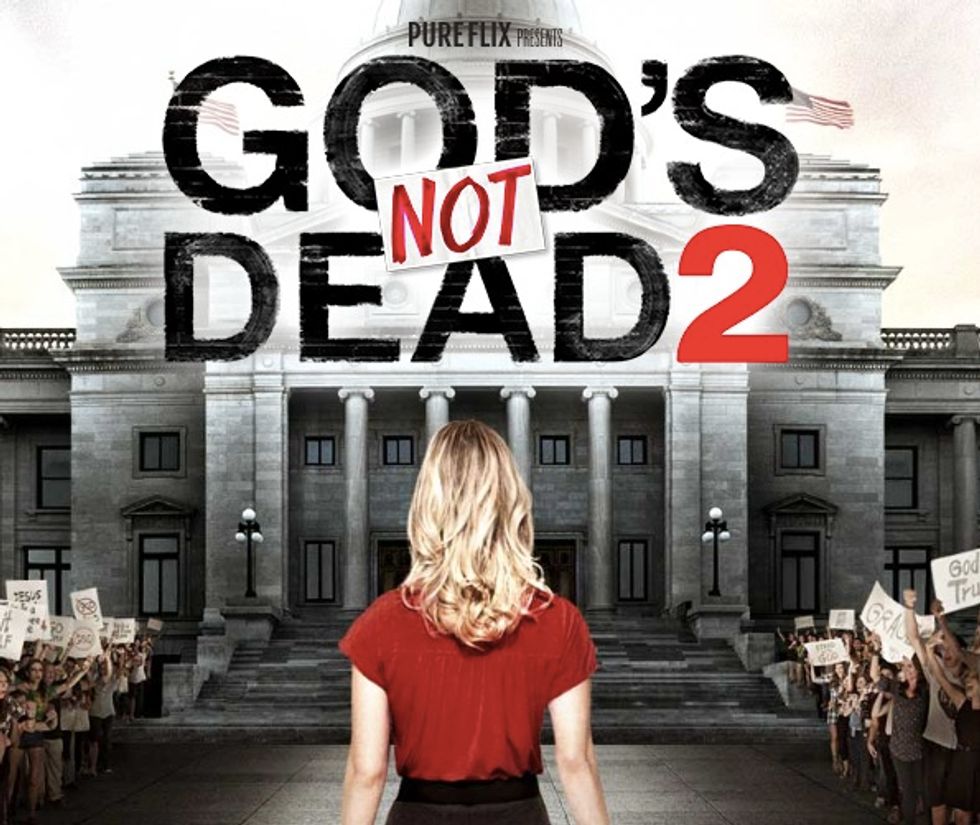
Pure Flix Entertainment

Any time a faith-based movie comes out to theaters - as opposed to being released straight-to-video - the makers are taking a big risk.
Faith-based movies trying to play in the mainstream film market almost never favor well with critics. They already have several strikes against them, mostly stemming from the nature of their existence. A faith-based movie is going to have to try even harder to appeal to the general audience - and to mainstream critics - who are already judging it as a church movie that isn't worth their time before they ever even see it.

The first "God's Not Dead" was a wonderful film. Whether you agree with its message, whether it speaks to you spiritually or not, it was a fun and entertaining movie. Despite this, it still holds only a 15 percent rating on Rotten Tomatoes. The sequel has a slightly lower rating.
"God's Not Dead 2," while engaging and fun in parts, doesn't manage to keep the viewers interest in the same way as the original. It also falls into many of the same traps as the original by making arguments that aren't sound and that didn't need to be made.
"God's Not Dead 2" tells the story of Grace Wesley, a high school history teacher who is sued by one of her students' parents for invoking the name Jesus Christ during a lesson about Martin Luther King, Jr.
While the exchange was completely innocent - and brought on by a question asked specifically by the student - the student's atheist parents are offended and decide to try silence Ms. Wesley.
Those in the mainstream media will have you believe that this plot is far-fetched and that there is no war on religion in the U.S., but the film cites multiple real-life court cases in the end credits which deal with circumstances very similar to those portrayed in the film.
The film does explain the "separation of church and state" fantastically. What Thomas Jefferson was referring to when he coined that phrase were Constitutional provisions designed to protect religion from state interference, not to protect the state from religion. Freedom of religion is not the same thing as freedom from religion. It just isn't, and the film does a wonderful job explaining this.
Where the film begins to falter, at least argumentatively, is when it tries to justify Jesus in the context of a history class by trying to prove that Jesus and is a historical figure. While a good case is made for the possibility of a historical Jesus walking the Earth, none of the evidence presented in the film is as solid as it would have the audience believe.
When you make the argument that Jesus was a historical figure, you open yourself up to having to prove that beyond a reasonable doubt. This argument can't stand up to this level of scrutiny with the archaeological evidence currently available. Instead, the film's argument should have been "I don't have to prove anything to you."
All too often films like this one seek to prove God exists, and they aren't ever going to be able to do that. The nature of God precludes ever being able to prove He exists. He doesn't want you to have irrefutable proof, He wants you to have faith.
The reason why Ms. Wesley shouldn't have had to prove anything is because the existence of Jesus - or the justification of a belief in God - is completely irrelevant to the case. The film makes all the arguments it needed during opening statements.
Ms. Fields' lawyer - played by Jesse Metcalf - cites Thomas Jefferson's letter to the Danbury Baptists. He explains that Ms. Fields' intention wasn't to preach or to proselytize, it was only to answer a question presented by the student and the comparison of MLK to Jesus Christ was made by the student and not the teacher. Those are the only relevent facts and nowhere is a proof of Jesus Christ needed and the film shouldn't have tried to journey in that direction.
The film's courtroom scenes stand out as the finest moments. The first act is a little slow, and it suffers for it. Where the first movie's set-up was quick and to the point, this one drags. Likewise, where the first movie did a great job of tying many peripheral storylines together to show how everything is connected, the sequel fails because connections seem forced and unnatural.
Much of what happens in the movie seems like filler. The scenes are well written and well acted; they just don't seem like they belong in this movie. It's almost as though the writer's had a 45-minute movie and then tried to pad it out to 90 minutes.
"God's Not Dead 2" is an entertaining enough movie and to anyone struggling with answers of faith and God it can be spiritually beneficial. Had they spent more time on the courtroom scene and less time with the peripheral characters, it would have been a much better film. If you're a fan of the first, however, there is probably enough here to keep you interested.
William Avitt will be appearing at Indiana Comic Con in Indianapolis, Indiana on Saturday April 30, 2016. He will be hosting a panel on film criticism at 9am in Rm. 133. If you're in the area stop by the panel or look for him on the convention floor all day Saturday.
–
TheBlaze contributor channel supports an open discourse on a range of views. The opinions expressed in this channel are solely those of each individual author.